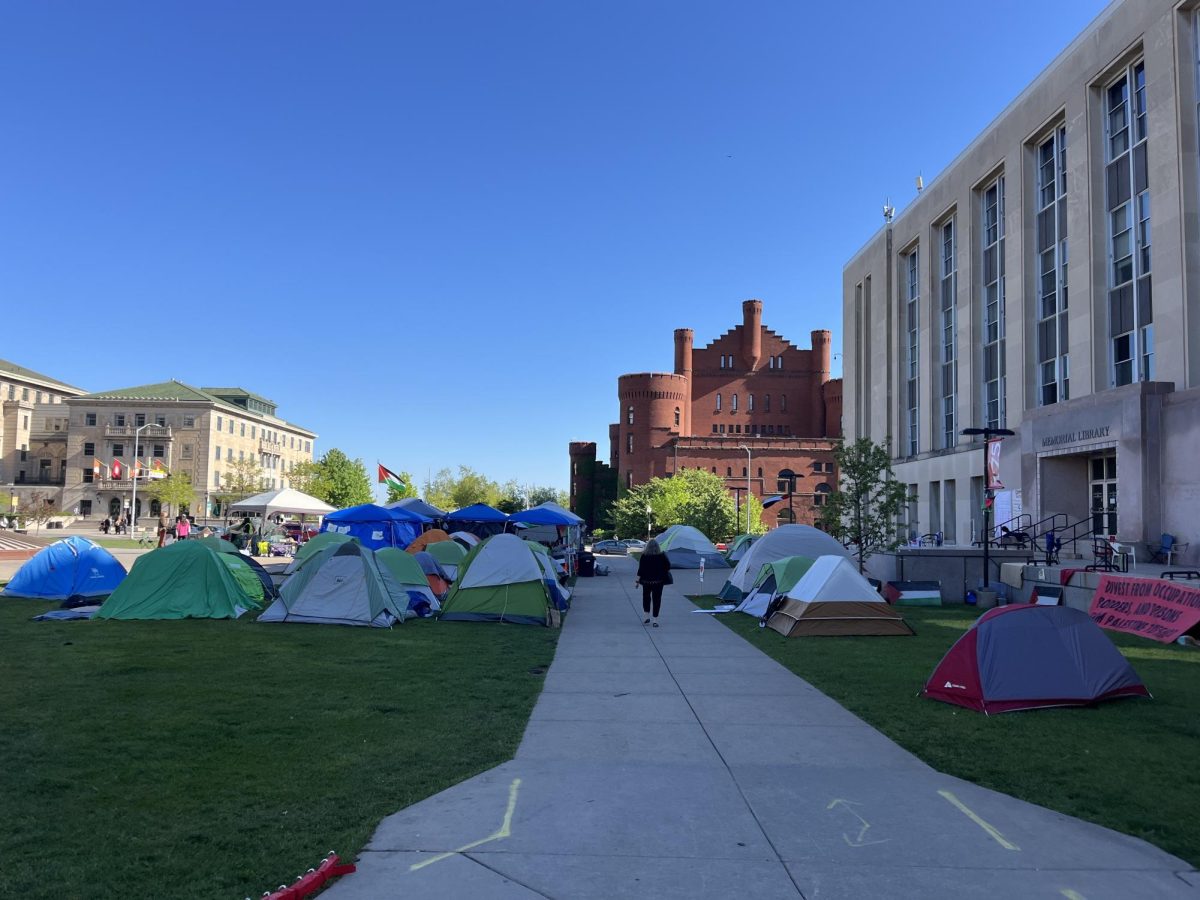
As the first snow flurries of the season blew through Madison Saturday, dozens of brave souls took to the icy, choppy waters of Lake Mendota in giant nautical gourds for the annual Giant Pumpkin Regatta.
Now in its sixth year, the event drew spectators and participants from across the Midwest, with pumpkin-paddlers coming in from Minnesota, Illinois and Michigan to participate, according to event orchestrator and University of Wisconsin horticulture professor James Nienhuis.
Coordinated in conjunction with the department of horticulture and the Hoofers Sailing Club, Nienhuis said this was the harshest weather pumpkin-pilots have faced in the history of the event.
Tasked with paddling their pumpkins around a short course through breaking waves and gusting October winds, very few made it out and back without capsizing and getting dunked, Nienhuis said.
The challenging weather proved to be too much, even for the genetically-designed gourds Nienhuis created specifically for the event.
“They’re actually bred not to be giant pumpkins, but sleek sailing squash that are unusually shaped to go through the water at breakneck speeds,” Nienhuis said.
Nienhuis said he achieved optimal dynamics in the gourds by crossbreeding giant pumpkin seeds with the relatively rare pink banana squash, which looks something like Fred Flinstone’s club — 3-feet long and one-foot in diameter — giving the gourds a longer, sleeker shape.
The real challenge is not growing the gourds, but handling them in turbulent waters, event coordinator and UW horticulture professor Irwin Goldman said.
Competitors took a variety of strategies piloting their pumpkins. Some took the barcalounger approach, dangling their legs off the front of the pumpkin, while others took a sitting or kneeling approach, which seemed to be a winning technique, Nienhuis said. Still others felt paddling their pumpkins backward gave them a competitive edge.
Cold, battered and soggy after their nautical exploit, the pumpkineers found refuge in the Hoofers boathouse, where volunteers fired up the fireplace and passed around warm hot chocolate.
With no prizes, no money involved in any way and no clear academic purpose, Nienhuis said the point of the event is really just simple and wholesome fun, which might be why it works so well, he said.
A large number of participants are students in the world vegetables horticulture class, and the event brings a dimension to the class and horticulture in general that is really fun, according to Goldman.
“We’re stretching the limits of what we can do with vegetables,” Goldman said.
Despite the less than ideal weather conditions, the event was still deemed a great success, especially when compared to 2005 when the boat pier collapsed, submerging at least 20 spectators in the lake.










